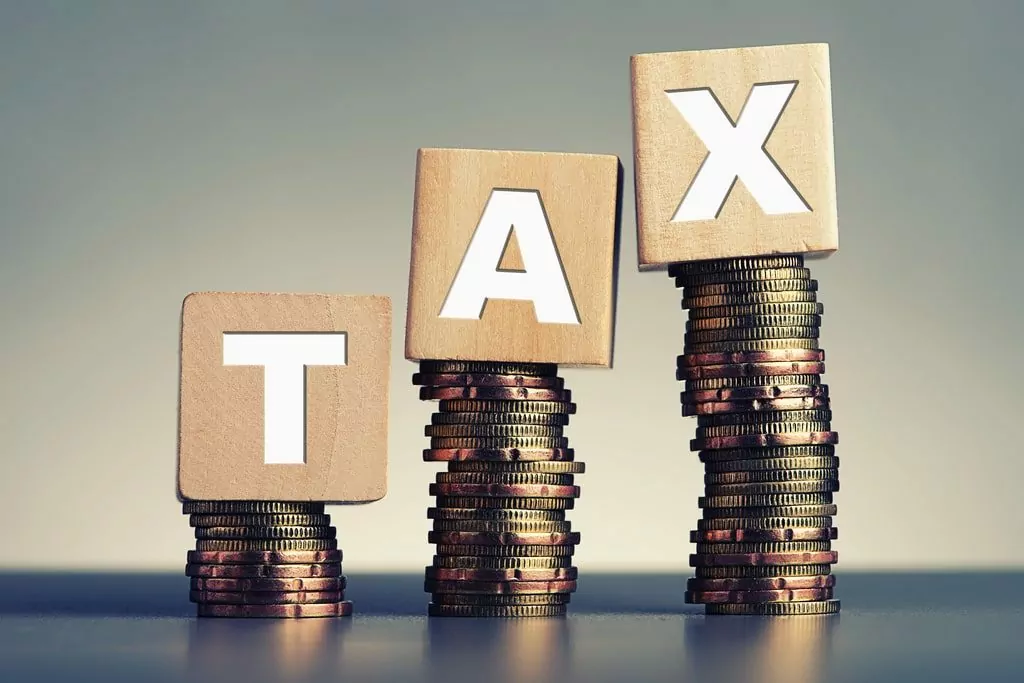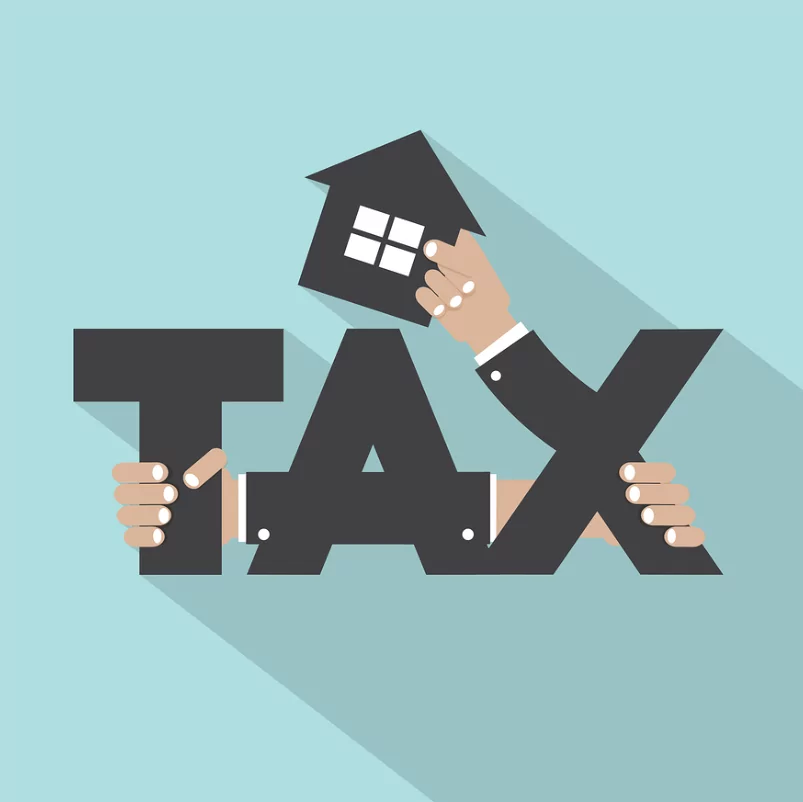Managing a rental property comes with a host of financial responsibilities—and one of the biggest expenses is mortgage interest. The good news? If you’re renting out property, you may be eligible to deduct that interest and reduce your taxable income.
In this guide, we’ll break down how rental property mortgage interest deductions work, the limits to be aware of, and how to properly claim them based on your mortgage loan terms and property type.
Key takeaways
- Rental property mortgage interest is deductible on Schedule E, offering tax relief for landlords.
- Allowable investment property mortgage deductions include interest payments on primary and rented second homes, mortgage points, late fees, prepayment penalties, home equity loans, and pre-sale interest.
- Non-deductible interest expenses on rental property include personal home loans, non-rental periods, and interest for owner-occupied parts of a property.
- Full mortgage interest deduction is available for rental properties, except for non-business related loans and owner-occupied portions.
- Eligible loans for mortgage interest deductions include first mortgages, HELOCs, second mortgages, home improvement loans, and fixed-rate loans for rental activities.
- Businesses with $26M+ in gross receipts can deduct mortgage interest up to 30% of adjusted income, while high-income landlords might take a 100% deduction with longer depreciation.
What is the mortgage interest deduction (HMID)?
The Home Mortgage Interest Deduction (HMID) is a tax benefit primarily for homeowners. As a homeowner, you can elect to itemize rather than take the standard rental property tax deductions on your property taxes and claim the interest on the first $750,000 of mortgage principal you’ve borrowed on your Schedule A. Depending on your circumstances, the home mortgage interest deduction can save you a significant amount on your income taxes.
You can’t take the HMID on your rental properties as a landlord or rental property owner. But that’s actually a good thing because you can deduct the mortgage interest on your rental property as a business interest expense on your Schedule E. This offers much more flexibility and doesn’t require you to itemize your Schedule A.
For instance, let’s say you buy a rental property for $600,000 with a $400,000 mortgage. In the first year, you pay $20,000 in interest and earn $60,000 in rental income. You can deduct $20,000 in interest from your rental income, reducing your taxable rental income to $40,000. Your lender will provide you with Form 1098 annually, detailing the mortgage interest you’ve paid, which helps claim this deduction.
What qualifies as deductible mortgage interest?
Investment property mortgage interest deductions impact your tax return. Here’s a breakdown of mortgage interest deduction scenarios:
- Primary residence mortgage interest: This includes interest on mortgages for a variety of primary residences, such as houses, condos, and even houseboats, as long as they have essential living facilities. It’s applicable even in cases like divorce settlements.
- Non-taxable housing allowance considerations: Those receiving housing allowances from military or ministry services can deduct the interest they pay on their mortgage.
- Second home mortgage interest: When deducting mortgage interest on a second home, the rules depend on the property’s use:
- For a vacation home used only personally, mortgage interest isn’t deductible against rental income but may qualify for a personal deduction.
- If renting out a second home part-time, deduct mortgage interest for the rental period only (e.g., 7.7% for four weeks of rental).
- In a mixed-use property, deduct interest based on the rented area’s proportion, like 40% for a 1,200 sq-ft rented space in a 2,000 sq-ft home.
- Deducting mortgage points: The cost of mortgage points, and prepaid interest, can be deductible. These points must be paid directly to your lender and can be deducted either immediately or over the loan’s duration.
- Late mortgage payment charges: Charges for late mortgage payments are deductible, but avoiding late payments is wise to protect your credit score.
- Early mortgage payoff penalties: Penalties incurred for early mortgage payoff can be deducted, provided they are not linked to additional services or loan costs.
- Home equity loan interest: Interest on loans taken against home equity is deductible if used for home-related improvements or purchases.
- Pre-sale interest: Interest paid on your mortgage before selling your home is deductible up to the point of sale.
What is not an eligible mortgage tax deduction?
When managing your rental property finances, knowing what mortgage interest you cannot deduct is equally important. Here’s a quick overview:
- Personal home loan interest: Interest on loans for your personal residence is not deductible against rental income.
- Non-rental periods: Interest accrued during periods when the property wasn’t available for rent isn’t deductible.
- Owner-occupied portion: For a property you reside in and rent part of, the interest for your living area is not deductible.
- Prepaid interest limitations: Prepaid interest, such as points or origination fees, isn’t immediately deductible but is spread over the loan’s term.
- Second home for personal use: Interest on a second home used for personal purposes doesn’t qualify for deduction against rental income.
- Non-business related loans: Interest on loans not used for your rental business, including personal loans or credit card debts unrelated to rental activities, is not deductible.
Rental property owners can only deduct the mortgage interest specifically related to the real estate business. Just as you can’t deduct the cost of personal expenses, you can’t deduct interest on mortgages for your own home. However, you may be able to deduct personal mortgage interest on your Schedule A using the Home Mortgage Interest Deduction.
Rental property mortgage deductions at a glance
| Deductible | Not deductible |
|---|---|
| Interest on loans that support your rental business | Interest on loans for your own home |
| Interest for the days the property was available for rent, even if you didn't have a tenant | Interest for the days the property was not available for rent |
| Interest for the portion of your owner-occupied home that you rent out | Interest for the portion of your owner-occupied home that you live in |
| Interest on loans that was applied within the tax year | Prepaid interest such as points and origination fees |
| Interest on a second home that's rented out | Interest on a second home for personal use |
| Interest on conventional and unconventional mortgages, private home loans, home equity lines of credit, unsecured loans and lines of credit, and credit cards when the money borrowed is used in your rental business. | Interest on loans when the money is not used in your rental business. |
How much mortgage interest is deductible?
You can deduct all the interest you paid on a mortgage for your rental property, with a few exceptions:
The mortgage doesn’t support your rental business
You can only deduct mortgage interest for loans used in your rental business, not your personal residence. The IRS could ask for records showing how the loan was used and will need to see if you followed their strict rules about how the money needs to be traced.
Use rental property bookkeeping software to keep track of all your rental expenses so you can stay organized at tax time and have records of all tax deductions at the ready in case you need them.
You occupy part of the property
Let’s say you own a detached home in Indiana and rent out a basement apartment. You can only deduct the portion of interest that covers the basement. The simplest way to calculate this is by using the floor area of the home. If the basement unit comprises 1/3 of the square footage, you can deduct 1/3 of your mortgage interest as an expense.
For example, if the home had a total floor area of 3,000 square feet, and you rented out the 1,000 square-foot basement suite, the rented portion of the home would be 33.3% (1,000 sq-ft ÷ 3000 sq- ft = 33.3%). If your annual mortgage interest paid for the home was $12,000, you could deduct $4,000 as an expense ($12,000 x 33.3% = $4,000).
You may still be able to deduct the interest on your personal portion of the mortgage on your Schedule A.
The rental property wasn’t available for rent for the entire year
The same is true if the unit was only available for rent for part of the year. If you own a condominium and began renting it out on July 1st, you would only be able to deduct half of the mortgage interest you paid that year. If you use your rental property for short-term rentals, you can only claim the days the rental property was actually available for rent (even if you didn’t have a renter on all of those days).
The mortgage interest doesn’t apply to the current property tax year
IRS rules state that you can only deduct interest in the year it was applied, which is not necessarily the year it was paid. Money spent on points and origination fees must be deducted over the life of the loan, even if they were paid upfront.
What loans qualify for a mortgage interest tax deduction?
The following rental property loans qualify for mortgage interest deductions:
- First mortgages: Interest on the primary loan for buying your rental property.
- Home equity lines of credit (HELOCs): Interest on HELOCs used for rental property-related expenses.
- Second mortgages: Deductible interest on additional mortgages for your rental property.
- Home improvement loans: Interest on loans specifically for improving your rental property.
- Fixed-rate loans: Interest on fixed-rate loans used for rental property purposes.
Key to this deduction is the ability to demonstrate that the loan was used for rental property purposes. Proper documentation and records are essential to validate your claims.
Mortgage interest deduction limits
Is there a limit on mortgage interest deduction on rental property? Yes, there are limitations based on your rental income management and the type of loan you have. Properly tracking income and expenses is essential to ensure you maximize your allowable deductions while staying within IRS guidelines.
- Section 163(j) limitation: This rule limits the amount of business interest that can be deducted. Specifically, the deduction is capped at 30% of adjusted taxable income, plus the business interest income and any floor plan financing interest.
- Gross receipts threshold: Businesses, including rental property operations, with average gross receipts exceeding $26 million over the past three years can only deduct interest payments up to 30% of adjusted taxable income.
- Exemption for high-income landlords: Landlords who earn income at or above the $26 million threshold can bypass these limitations by filing a specific election on tax returns, to deduct 100% of interest expenses. However, this choice comes with a caveat of agreeing to depreciate real property over longer periods than usual.
Final thoughts: tax deductions for rental property mortgages
There are lots of actual expenses and tax deductions associated with being a landlord or rental property owner, and mortgage interest is typically one of the largest. Fortunately, you can write off mortgage interest on your Schedule E to reduce your rental income and lower your property tax bill. But keeping track of those deductions, along with every other rental expense, can quickly become overwhelming without the right accounting software for real estate investors in place.
Baselane’s integrated AI-powered bookkeeping, banking, and rent collection make it easy to keep your personal and rental finances separate and organized. Open unlimited accounts per property and sync external banks into one consolidated ledger, with all your income and expenses auto-tagged directly to the right property and Schedule E category so you never miss a deduction.
Whether you’re managing rentals or HOA finances, tools like Baselane or dedicated HOA bookkeeping software can streamline tax prep, so you spend less time sorting transactions and more time scaling your rental business.
Ready to put your rental finances on autopilot and maximize returns? Sign up for free today.
FAQs
Yes, as a rental property owner, you can deduct mortgage interest on your rental property. This is one of the main rental property deductions available, which can help reduce your taxable income.
If you’re renting a separate unit in an owner-occupied home, such as a basement apartment, you can deduct a fraction of your mortgage interest equal to the fraction of the home that’s rented out.
For example, if your rented basement apartment comprises ¼ of the home’s square footage, you can deduct ¼ of your mortgage interest on your Schedule E. You may also be able to take the HMID on your Schedule A for the remainder of your interest expense.
Yes, there can be a limit on mortgage interest deductions for rental property, especially if you have a high income or own multiple properties. It’s important to consult with a tax professional to understand any limitations specific to your situation and to ensure you’re taking advantage of the full scope of landlord deductions available to you.
Yes, mortgage points are generally tax deductible. In the United States, if you pay points to obtain a loan for your primary residence, you may be able to deduct those points on your income tax return for the year you paid them.
However, there are specific rules and conditions that apply, such as the loan being secured by your home and the points being a percentage of the loan amount. It's also important to keep in mind that the IRS has guidelines on how points should be calculated and deducted, so you might want to consult a tax professional for personalized advice.
Yes, mortgage insurance premiums (PMI or MIP) can be tax deductible—but there are a few important conditions:
- The mortgage insurance must be on a loan for a rental or investment property, or a qualified home acquisition loan.
- The deduction is generally claimed on Schedule E for rental properties as part of your operating expenses.
- The IRS has periodically extended or limited this deduction for personal residences; for rental properties, it's typically more straightforward.
You cannot deduct mortgage insurance if the loan isn’t used for rental/business purposes (for Schedule E). Additionally, there are income phaseouts for high earners if the deduction applies to a primary home.
If you’re deducting mortgage interest on your rental property, you can usually deduct mortgage insurance premiums too—just make sure to track them properly through your bookkeeping.
Home equity loan interest is tax deductible on rental property as long as the borrowed funds are used exclusively for rental-related expenses. The HELOC must be secured by the rental property or used for rental business purposes (like renovations, repairs, or upgrades) and the must be traced directly to rental expenses claimed on Schedule E—this is key to proving deductibility to the IRS.
If you're using the HELOC for a portion of the property you live in, you can only deduct a proportional share of the interest based on rental use (e.g., 40% if 40% of the space is rented out).
To simplify this, use Baselane’s AI-powered landlord accounting and integrated banking to keep personal and rental finances separate. You can create virtual accounts and auto-tag rental expenses (including HELOC interest payments), making it easier to maximize deductions and stay audit-ready.
If you refinance a rental property, the loan interest is generally tax deductible as long as the refinanced funds are used for your rental business. This can include using funds to pay off an existing mortgage on the rental property or for rental-related improvements, repairs, or other investment expenses. The property must be available for rent (not solely for personal use) and the interest should be reported on Schedule E as a rental business expense.
For example, if you cash out refinance and use 70% of the loan for the rental and 30% for personal reasons, you can only deduct 70% of the mortgage interest.
While many expenses can be deducted, such as the rental property mortgage rate interest and maintenance costs, not all expenses related to rental property are tax-deductible. Capital improvements, for example, are not immediately deductible but are typically depreciated over time. Always consult a tax expert to know all allowable rental property deductions.
Yes, as a rental property owner, you are required to report rental income on your tax return. However, you can claim expenses to offset this income, including property management fees, mortgage interest, and property maintenance tax deductions.
Read our guide for expert tips on how to pay no taxes on rental income and ways to minimize taxes if you end up owing.
For the most part, you can deduct all of your rental property expenses against your rental income, including rental property taxes, advertising, insurance, maintenance costs, and even travel. The interest on a mortgage for rental property, influenced by the rental property mortgage rate, is also deductible. Consider consulting professionals for all potential deductions.
Absolutely! Obtaining a mortgage for rental property is a common way investors purchase real estate to rent out. However, the rental property mortgage rate might be slightly higher than for a primary residence due to the perceived increased risk associated with rental properties. It’s crucial to shop around for the best rates and terms when seeking a mortgage for a rental property.








